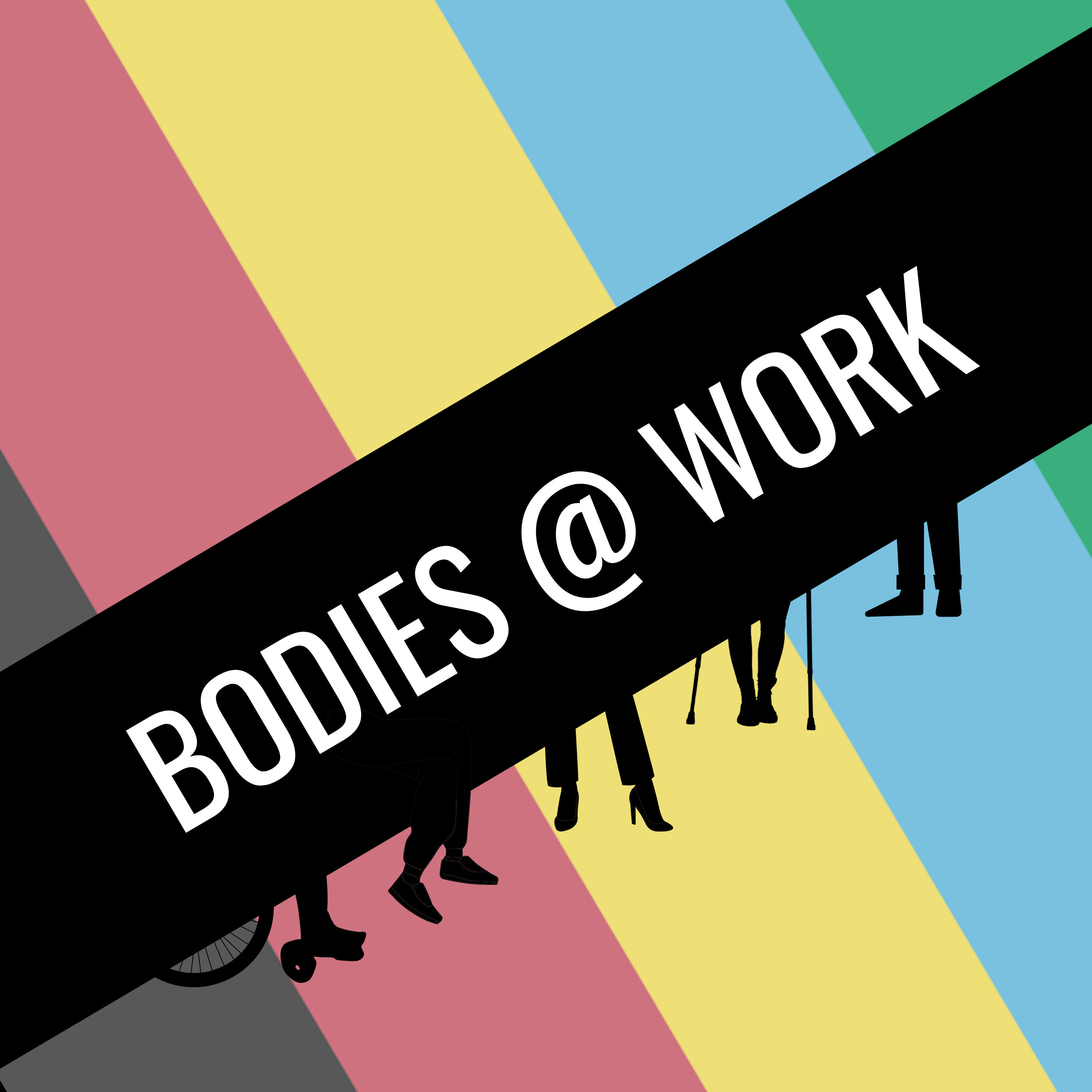Bodies @ Work

Bodies @ Work
Podcast Description
Approximately half our working population is managing at least one chronic health condition. Factors including an ageing population, poor access to healthcare and affordable housing, social dislocation, precarious work, as well as the long tail of the pandemic, are compounding the prevalence of chronic illness in people of working age.Bodies @ Work interviews guests who are researching and working at the intersection of chronic illness/disability and employment. We aim to amplify conversations about how illness effects our working lives and what we can do to improve work outcomes for people living with disabling chronic conditions.Any feedback or ideas for future topics or guests can be sent to [email protected] @ Work is produced by Cultural Value
Podcast Insights
Content Themes
The podcast explores themes surrounding chronic illness and disability in the workplace, with topics including initiatives for better employment outcomes, inclusive workplace practices, and co-managing health at work. Episodes highlight issues such as the energy crisis impacting workers with long-COVID or fibromyalgia, as well as innovative healthcare solutions for chronic conditions.

Approximately half our working population is managing at least one chronic health condition. Factors including an ageing population, poor access to healthcare and affordable housing, social dislocation, precarious work, as well as the long tail of the pandemic, are compounding the prevalence of chronic illness in people of working age.
Bodies @ Work interviews guests who are researching and working at the intersection of chronic illness/disability and employment. We aim to amplify conversations about how illness effects our working lives and what we can do to improve work outcomes for people living with disabling chronic conditions.
Any feedback or ideas for future topics or guests can be sent to [email protected]
Bodies @ Work is produced by Cultural Value
Guest: Professor Bethan Evans
My guest today is Bethan Evans, Professor of Human Geography at the University of Liverpool. Bethan and her colleagues are doing really interesting research on the experiences of academics who are navigating working in academia whilst living with chronic health conditions.
In her paper titled "Being left behind beyond recovery: ‘crip time’ and chronic illness in neoliberal academia" and in her work on the Exhaustion Economy, Bethan and her colleagues argue that ‘crip time’ is a useful lens through which to frame the cognitive, psychological and emotional struggle of academics living with energy limiting conditions.
We talk in detail about the structural particularities of academic work and what makes it especially inhospitable to people living with chronic conditions. But we also discuss the way it's possible to adapt and find sustainable ways of working.
This is a timely conversation given the parlous state of DEI discourses in the world of work. So, I am grateful to have this opportunity for a more nuanced discussion about the importance of accommodating bodies of all kinds into the workplace.
References:
Evans, B., Allam, A., Bê, A., Hale, C., Rose, M., & Ruddock, A. (2024). Being left behind beyond recovery: ‘crip time’ and chronic illness in neoliberal academia. Social & Cultural Geography, 1–21. https://doi.org/10.1080/14649365.2024.2410262
https://exhaustioneconomy.uk/
Kafer, A. (2013). Feminist, queer, Crip. Indiana University Press.
Mingus, M. (2011, May 5). Access Intimacy: The Missing Link. Leaving Evidence. https://leavingevidence.wordpress.com/2011/05/05/access-intimacy-the-missing-link/
Samuels, E. (2017). Six ways of looking at crip time. Disability Studies Quarterly, 37(3), Article 3. https://doi.org/10.18061/dsq.v37i3.5824
Support this podcast at — https://redcircle.com/bodies-at-work/donations

Disclaimer
This podcast’s information is provided for general reference and was obtained from publicly accessible sources. The Podcast Collaborative neither produces nor verifies the content, accuracy, or suitability of this podcast. Views and opinions belong solely to the podcast creators and guests.
For a complete disclaimer, please see our Full Disclaimer on the archive page. The Podcast Collaborative bears no responsibility for the podcast’s themes, language, or overall content. Listener discretion is advised. Read our Terms of Use and Privacy Policy for more details.